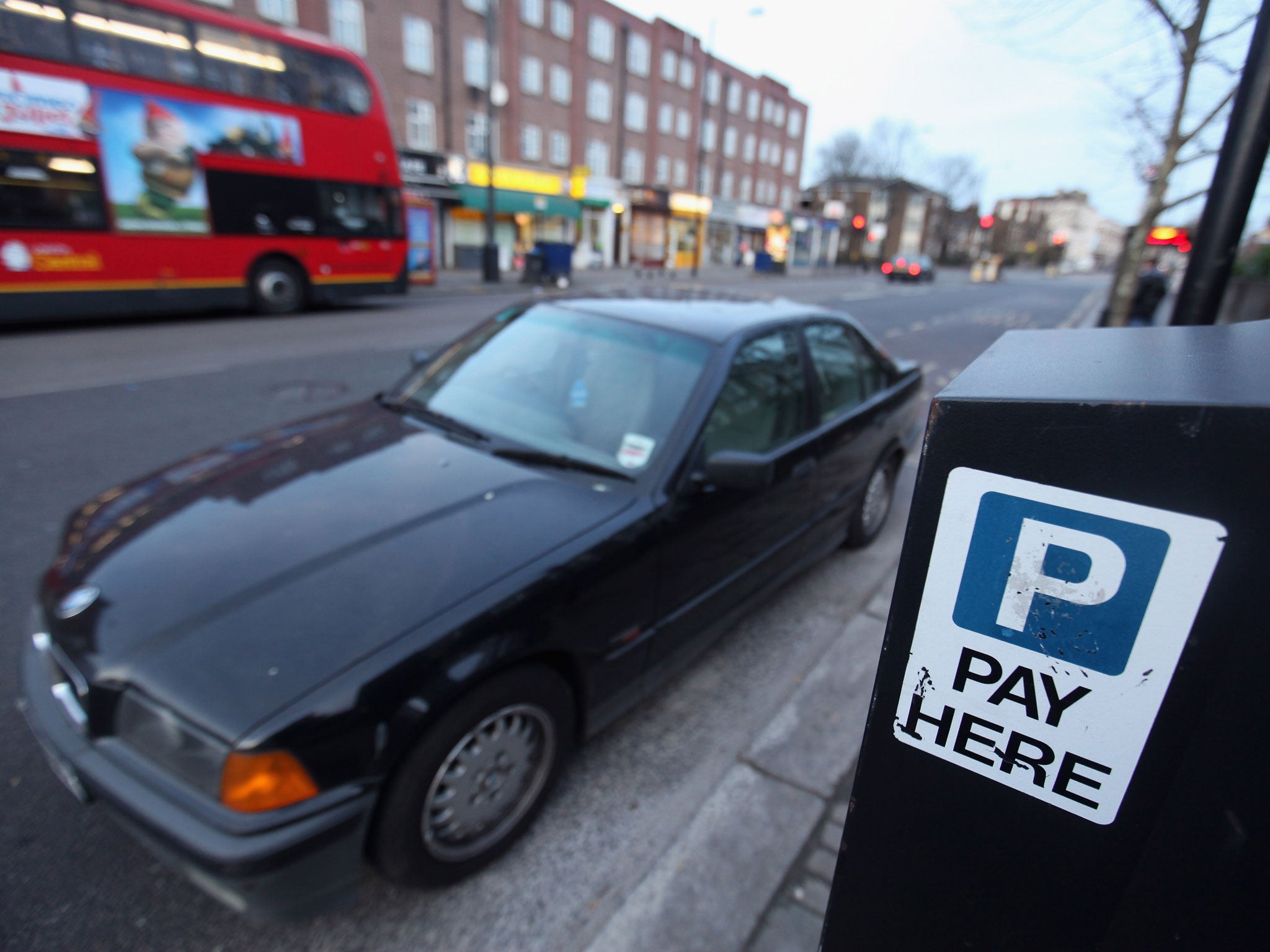Councils make £600m profit from parking tickets

Your support helps us to tell the story
From reproductive rights to climate change to Big Tech, The Independent is on the ground when the story is developing. Whether it's investigating the financials of Elon Musk's pro-Trump PAC or producing our latest documentary, 'The A Word', which shines a light on the American women fighting for reproductive rights, we know how important it is to parse out the facts from the messaging.
At such a critical moment in US history, we need reporters on the ground. Your donation allows us to keep sending journalists to speak to both sides of the story.
The Independent is trusted by Americans across the entire political spectrum. And unlike many other quality news outlets, we choose not to lock Americans out of our reporting and analysis with paywalls. We believe quality journalism should be available to everyone, paid for by those who can afford it.
Your support makes all the difference.Councils across England have been accused of implementing “an unacceptable mass ticketing culture” after the release of figures showing that car parking charges have generated £600m of surplus profit in the past year.
In towns and cities across the country, car parking costs have risen despite overall spending on local roads falling. But it is the combined profit – calculated by adding income from parking charges and penalty notices and then deducting running costs – which has proved most lucrative, according to a new study.
In 2012-13 councils generated a combined profit of £594m, a 5 per cent increase on the figure from the previous year. Budgets submitted by local authorities suggest the surplus for the financial year ending next April could be as high as £632m, while just 52 of the 353 parking authorities in England reported any sort of deficit.
According to the figures, calculated by the RAC Foundation through annual returns submitted by councils to the Department for Communities and Local Government, the London borough of Westminster generated the highest car parking surplus in Britain, of £39.7m. It was followed by Kensington & Chelsea in west London (£30.44 m) and Camden in north London (£23m). Outside the capital Brighton (£16.25m), Nottingham (£11.79m) and Manchester (£8.78m) generated the most profit in the top 10 regions.
The figures give ammunition to MPs who are calling for councils to publish annual parking-charge reports which show where the revenue is coming from and where it is being spent. Louise Ellman, the chairman of the House of Commons Transport Committee, previously said the use of parking charges and fines to raise revenue was “neither acceptable nor legal”.
The committee report also recommends that drivers should be given “five minutes’ grace” after their pay and display tickets expire before being issued infringement notices.
Paul Watters, the head of roads policy for the AA, said: “CCTV has fuelled an unfair culture of mass-ticketing instead of a deterrent. It has gone too far – and some streets are really raking it in. In terms of higher car parking charges, not only are they not cost-effective but it can have a damaging effect on visitors to a region and tourism.”
Stephen Glaister, the director of the RAC Foundation, said: “ Once again English councils have made record amounts from parking. Yet overall spending on local roads has fallen by 9 per cent over the past three years, with road safety expenditure down by as much as 20 percent.
“There’s no disputing the figures we have looked at. They are the numbers the councils themselves submit to central government. What’s more, council budgets show that the surplus for the current year is set to be higher.”
But Peter Box, the chairman of the Local Government Association’s economy and transport board, said: “Councils do not make a profit from parking. All income from charges and fines is spent on running parking services and any surplus goes on essential transport projects such as bringing our dilapidated road network up to scratch and providing subsidised bus travel for children or elderly residents.”
Read more:
Join our commenting forum
Join thought-provoking conversations, follow other Independent readers and see their replies
Comments